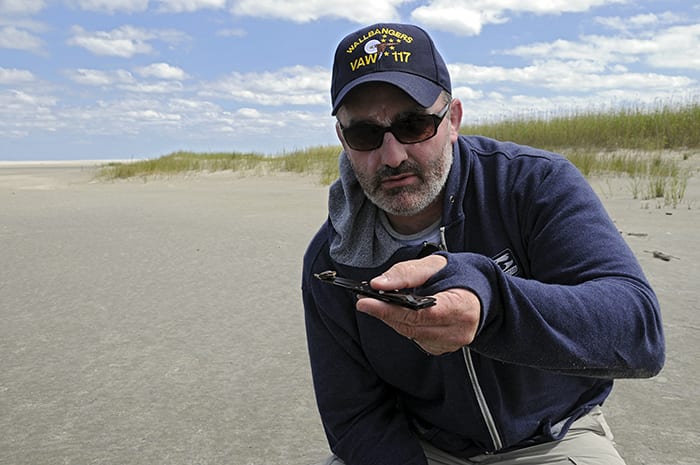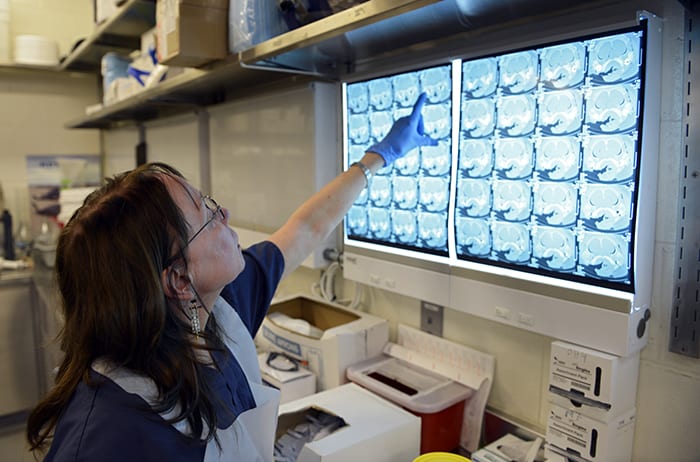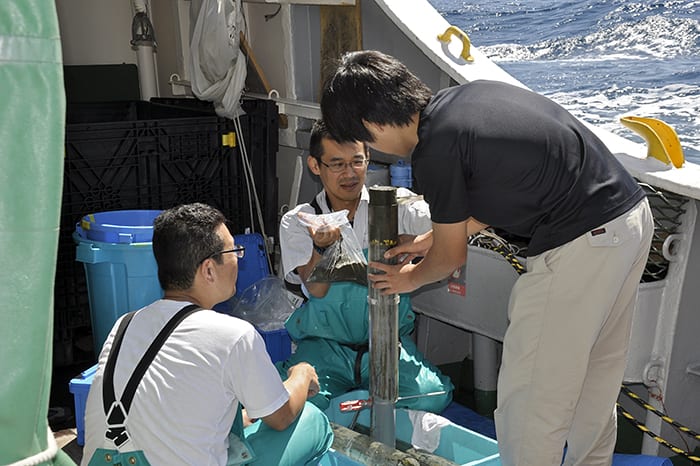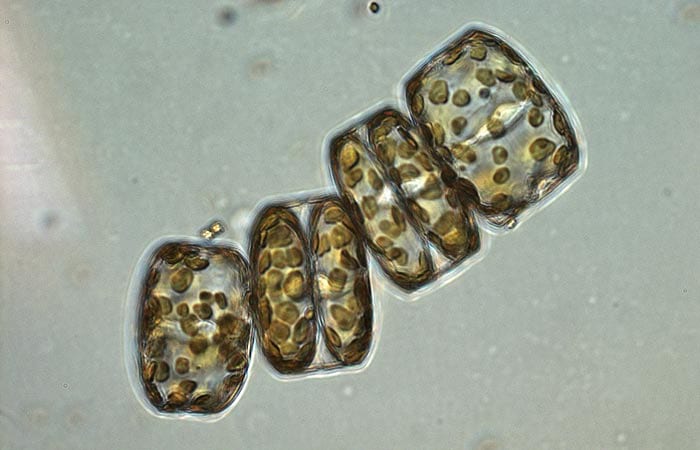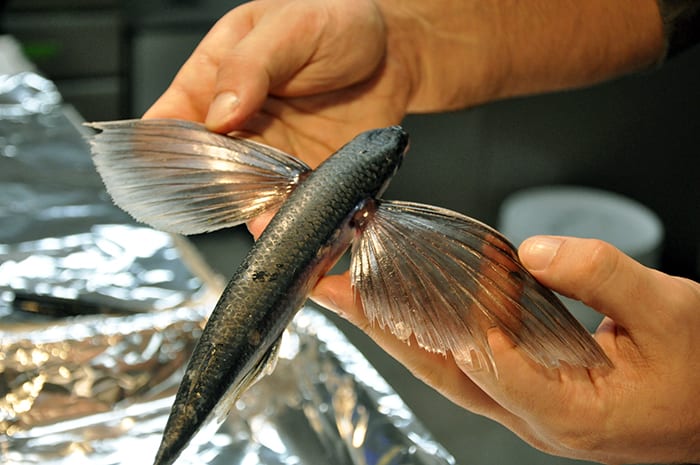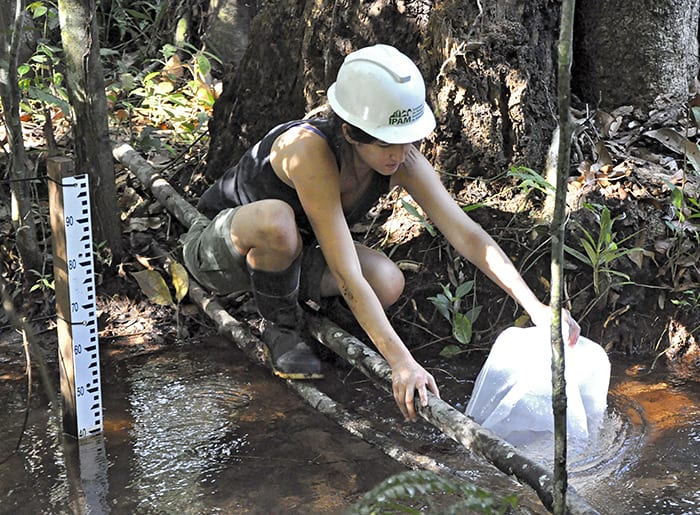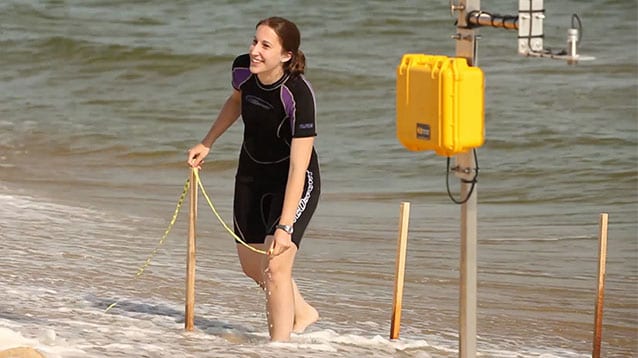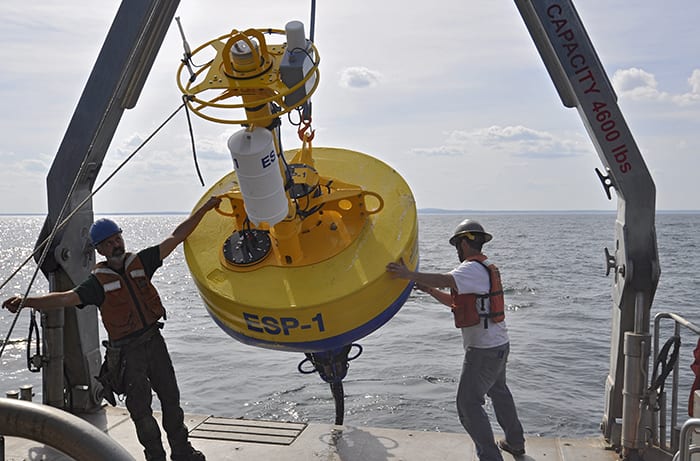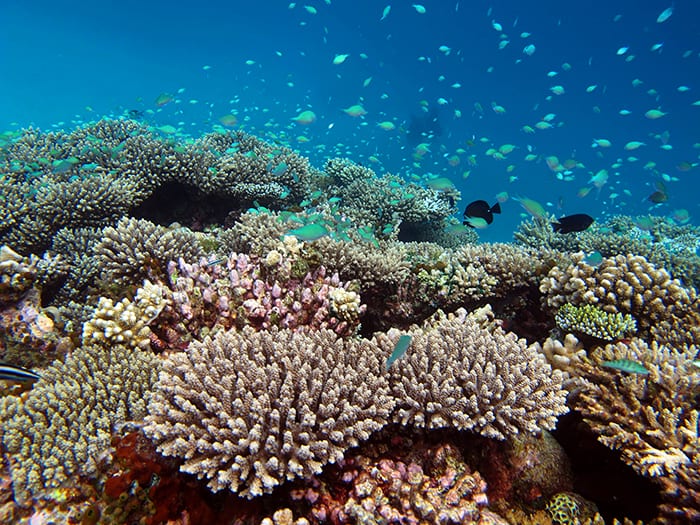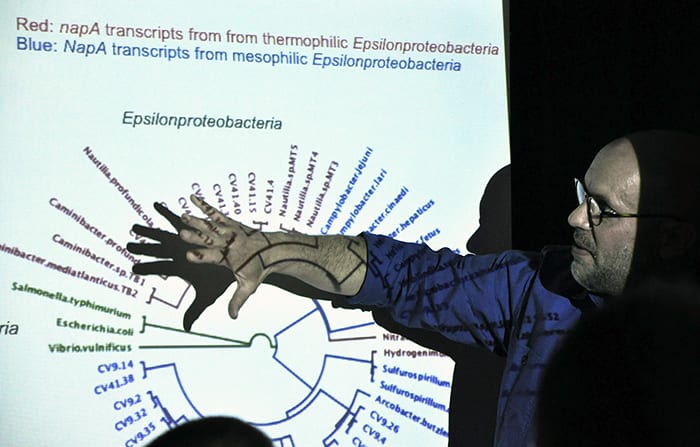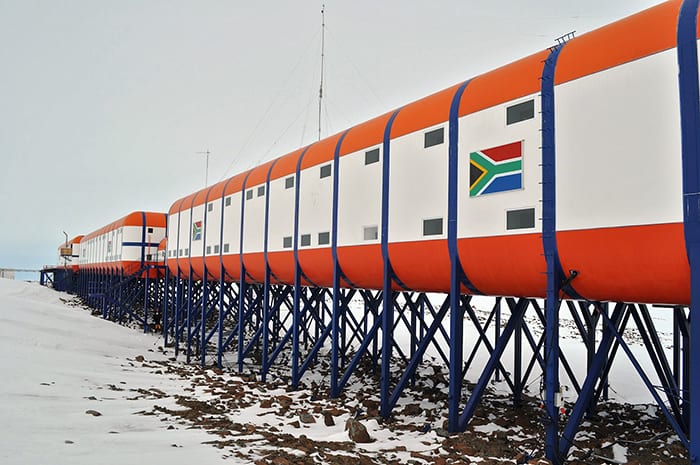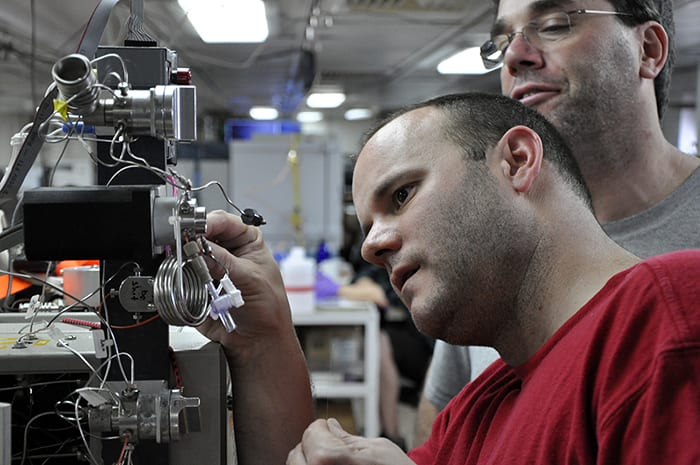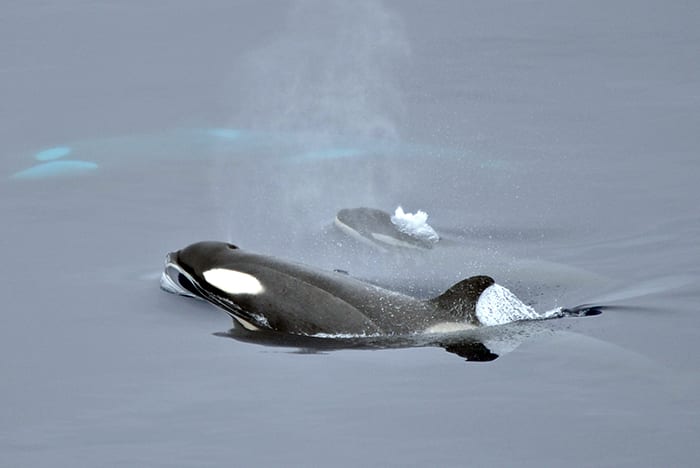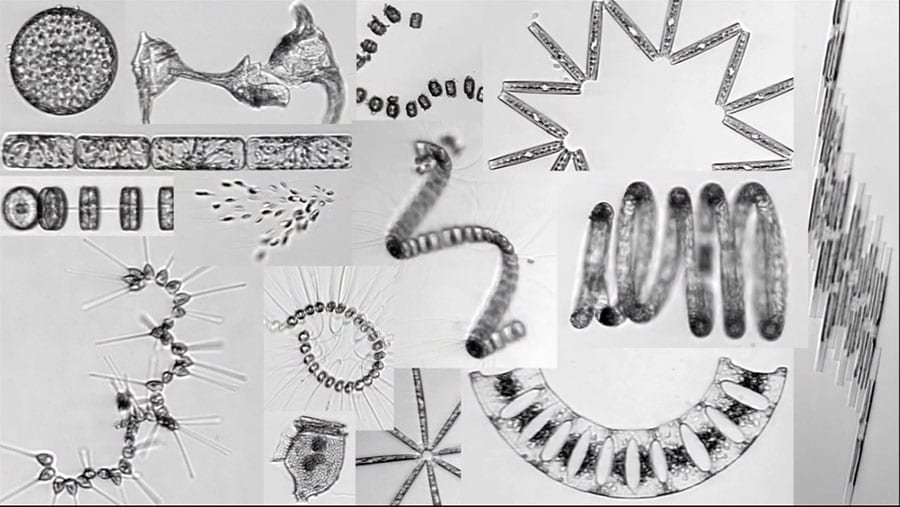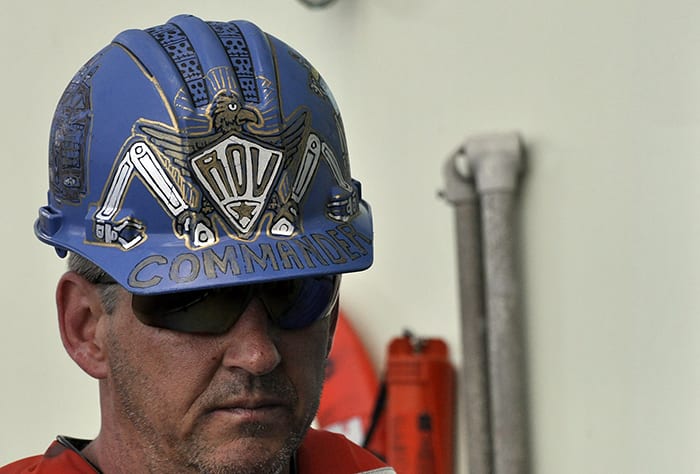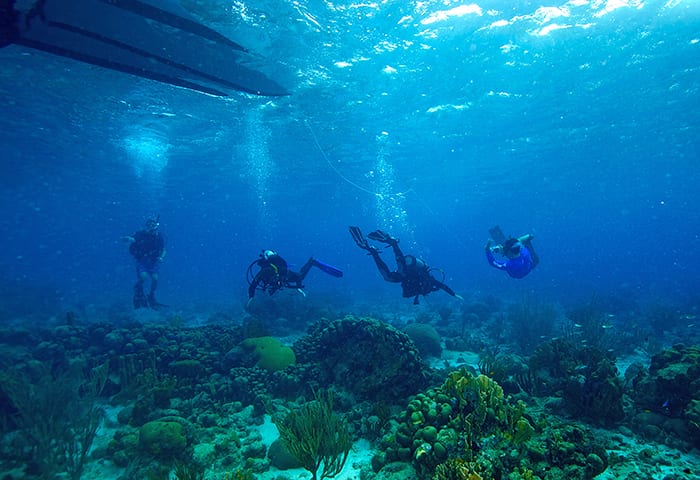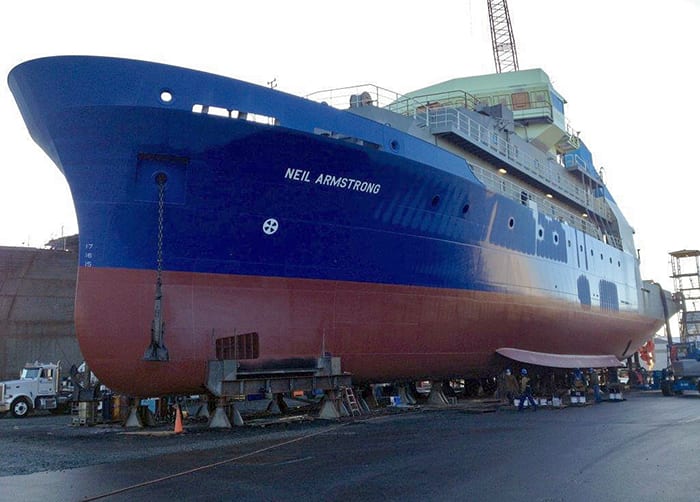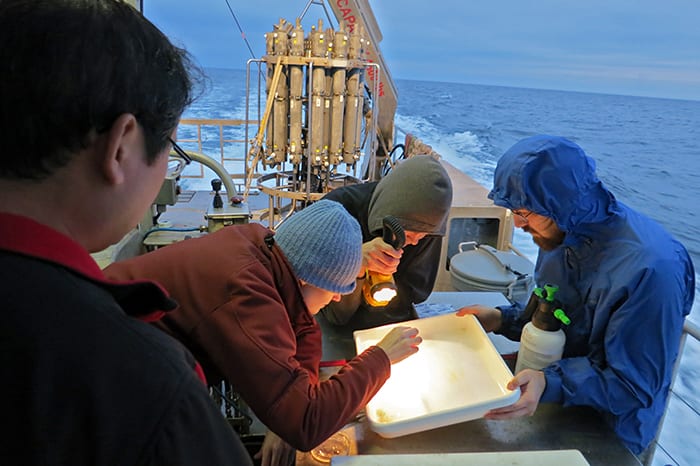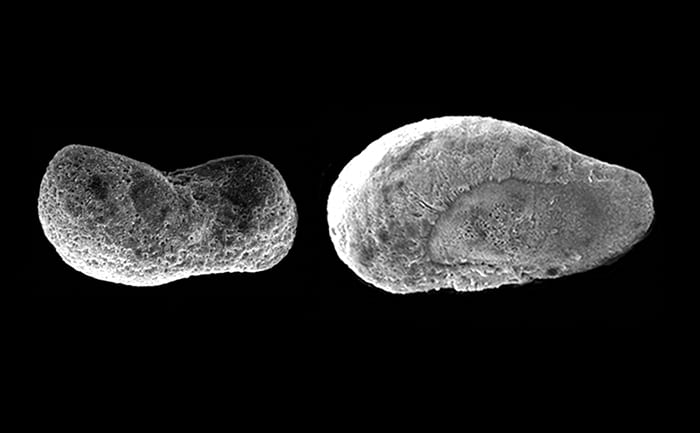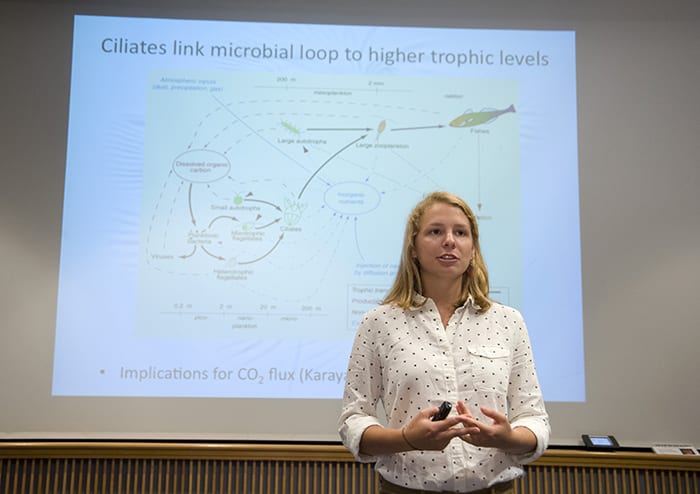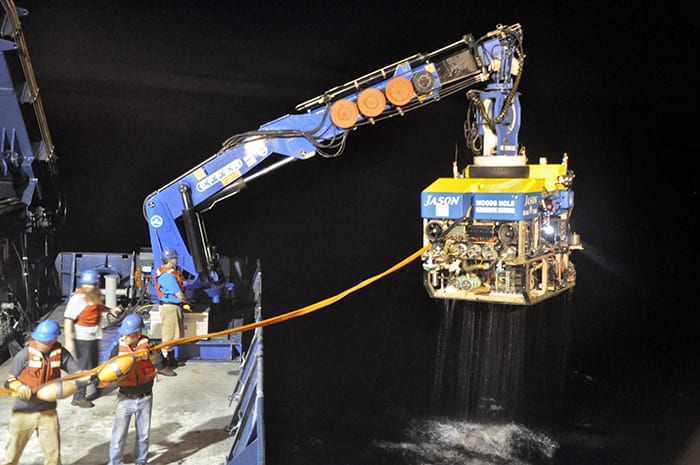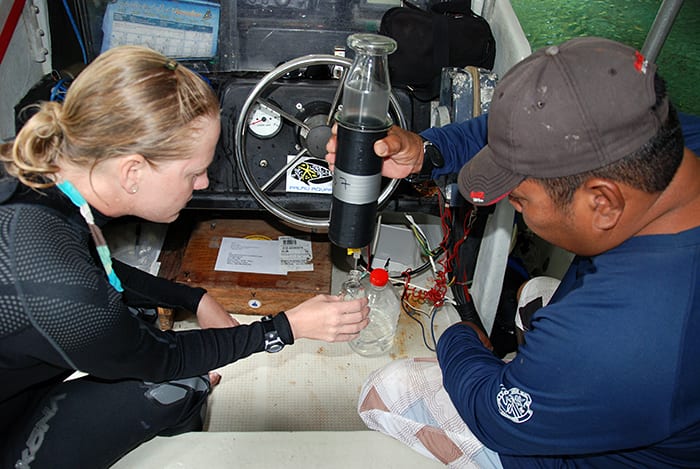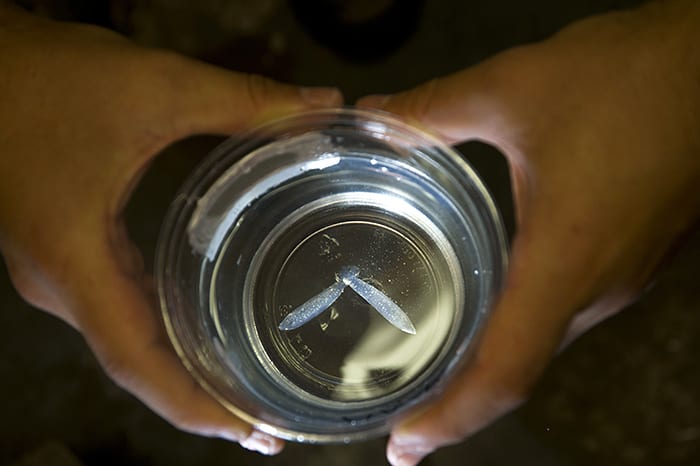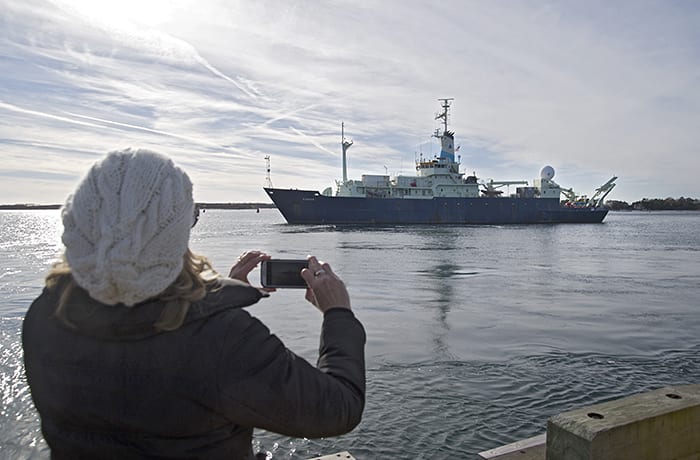Multimedia Items
Deepwater Detective
WHOI marine chemist Chris Reddy holds a piece of debris found in 2011 on the Chandeleur Islands off the coast of Louisiana. It was one of many that began appearing…
Read MoreRare Look at Rare Whales
Marine biologist Darlene Ketten points to CT scans of a whale head, indicating its earbones. Ketten, an expert on marine mammal hearing and ears, examined the heads of two rarely…
Read MoreSampling Fukushima
Core samples from the seafloor provide Japan Atomic Energy Agency scientist Shigeyoshi Otosaka (left) and his colleagues data for studying the dispersion and sedimentation of radionuclides from the Fukushima nuclear…
Read MoreStressed-out Phytoplankton
They may be microscopic and single-celled, but marine phytoplankton like these Melosira sp. are not immune to the stresses of everyday life. Like us, they require essential nutrients such as…
Read MoreSomething Fishy
This unlucky flying fish wound up on the deck of the research vessel Atlantis during a recent cruise to the East Pacific Rise. These fish can leap out of the…
Read MoreAn Amazonian Task
MIT-WHOI Joint Program graduate student Sarah Rosengard collects a sample from a stream running through the Tanguro ranch, a soy and corn plantation located in the rainforest of Mato Grosso, Brazil. With…
Read MoreFrom Lab to Sea
By Daniel Cojanu, Elise Hugus :: Originally published online November 19, 2014
Read MoreA Lab in the Sea
WHOI scientists deployed a new instrument last spring that they believe could revolutionize oceanography. WHOI engineering assistants Will Ostrom (left) and Jeff Pietro helped put the instrument, called an Environmental…
Read MoreLiving Reefs
An abundance of life inhabits the coral reefs surrounding Vavvaru Island in the Maldives. WHOI Scientists Konrad Hughen, Justin Ossolinski and Amy Apprill, along with King Abdullah University of Science…
Read MoreSeminar at Sea
Early during a cruise to hydrothermal vents on the East Pacific Rise, microbiologist Costa Vetriani of Rutgers University gave a presentation to other members of the scientific team about the…
Read MoreHome (Way) Away from Home
The South African Antarctic base SANAE IV was just the first stop in late 2013 on a lengthy trip for WHOI chemist Phoebe Lam. After a short stay, she boarded…
Read MoreGas It Up
WHOI research associate Sean Sylva (foreground) and geochemist Jeff Seewald troubleshoot a blocked valve in a gas chromatograph, an instrument they used to analyze the gas content of fluids collected…
Read MoreWhale Watch
Orcas, also known as “killer whales,” are considered apex predators, occupying a niche at the top of the food web with few or no predators of their own. WHOI chemist…
Read MoreSea-truthing near Martha’s Vineyard
By Amanda Kowalski, Ari Daniel :: Originally published online January 1, 2014
Read MoreJason Expedition Leader
Tito Collasius, expedition leader of the team that operates the remotely operated vehicle (ROV) Jason sports his trademark hard hat on a recent research cruise. The son and grandson of…
Read MoreIsland Hopping
On a recent cruise aboard Pangaea Exploration’s vessel Sea Dragon, members of WHOI biogeochemist Anne Cohen’s lab sailed across the Caribbean to sample the skeletons of centuries-old coral colonies. MIT-WHOI…
Read MoreNext in Line
When it joins the Institution’s fleet late in 2014, the newly-built R/V Neil Armstrong will be the twentieth ship operated by WHOI. In the early years of ocean science research…
Read MoreLight Work
Aleck Wang, Amy Maas, Gareth Lawson, and Alex Bergan (left to right) ventured out on WHOI’s coastal research vessel Tioga this fall to study changes in the marine environment of…
Read MoreThe State of Statoliths
Squids make statoliths, an important part of their balance organ, from calcium carbonate. But increasing atmospheric carbon dioxide levels is causing ocean acidification, which reduces carbonate in the oceans and…
Read MoreFuture of Ocean Science
Summer Student Fellow Anna Nisi shares the results of her research on the marine microbial food chain at the end of the Summer 2013 session. The Carleton College student worked with…
Read MoreUp From Below
A crane hoists Jason, WHOI’s 9000-pound remotely operated vehicle (ROV), onto the deck of the research vessel Atlantis. The deep-sea robot had just spend several days more than one mile…
Read MoreResilient Reefs
WHOI post-doctoral scholar Kathryn Shamberger (left) and an employee of the Palau International Coral Reef Center collect a water sample during field research in November 2013. Shamberger is part of…
Read MoreHolding the Key
As the oceans become more acidic due to the increase of carbon dioxide in the atmosphere, marine scientists are studying how organisms, such as the several hundred young squid developing…
Read MoreThere and Back Again
R/V Knorr is a common sight in Woods Hole, but its departure still draws a crowd, especially when it leaves for far-flung places. Here, the ship pulls away from the WHOI…
Read More
